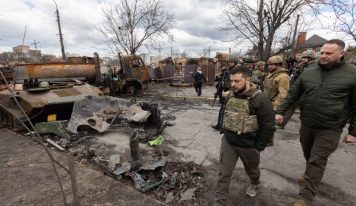Edward Snowden left the US and fled to Russia after effectively causing the largest security leak in US history and today, both countries seem to be going in somewhat opposite directions with regards to electronic freedom. In the case of the US, there are two competing bills which are designed to limit bulk collection of phone records. The Guardian has a good write up of the situation.
In summary, there is the The USA Freedom Act, designed to prevent the US government from collecting US phone data in bulk, passed by the House Judiciary Committee with a 32 to zero bi-partisan vote, making it the first surveillance reform bill to proceed out of committee and to the House floor. The bill is becoming increasingly watered down over time as politicians seem to be concerned about tying the hands of the NSA and other agencies.
The revised USA Freedom Act permits the government to get phone data two “hops,” or degrees of separation, from the target of the order, which can mean millions of call records reaped from a single court order. The legal standard for that order, for counterterrorism purposes, will be “reasonable articulable suspicion” of connection to an agent of a foreign power, the NSA’s desired framework.
The Fisa Transparency and Modernization Act is a similar bill. The major difference between the two remains the role of judges in authorizing data collection. This Act permits the government to collect phone and email data absent a judges’ prior order, which the revised USA Freedom Act requires in all but emergency cases. Many think the bills will merge.
The point here is there is at least an attempt to make it more difficult for the federal government and its various agencies to have wholesale access to the phone records and related online information of citizens. Still, let’s not celebrate until a law which really does protect civil liberties is passed.
On the flipside, Russia is tightening the screws on bloggers as President Vladimir V. Putin quietly signed a new law requiring popular online voices to register with the government, a measure that lawyers, Internet pioneers and political activists said Tuesday would give the government a much wider ability to track who said what online.
Of course his justification is no doubt related to recent comments about the Internet where he called it “a special C.I.A. project.” Many fear that Russia will emulate the locked-down Internet model which China currently employs.
One wonders what will happen to the free and open Internet once enjoyed by much of the world. The technological revolution which has made the Internet so accessible is similar to what governments are using to monitor and block sites. Moore’s Law for example allows your computer to get smaller and faster but it also allows a deep-packet inspection device to monitor a lot of Internet traffic in real-time.
What this means of course is we can expect Russians to start to borrow the ideas that underground users in China use such as Tor to evade censorship and blocked sites. Sadly, many of these same tools have to be used in the US by legitimate users who don’t like being spied on by their own government.
The challenge for the NSA and just about every government out there looking to lock down the internet is that after Snowden came out, there are now thousands of tech workers who devote themselves to ensuring their users are able to communicate online in a more secure fashion. This will lead to a more dangerous world as criminals and terrorists will no doubt use the same tools.
Edward Snowden has certainly changed the world by outing the NSA’s playbook and “protesting” by leaving the country. One wonders though how someone so concerned about what the government does online to its citizens can live in Russia with everything happening there now.





